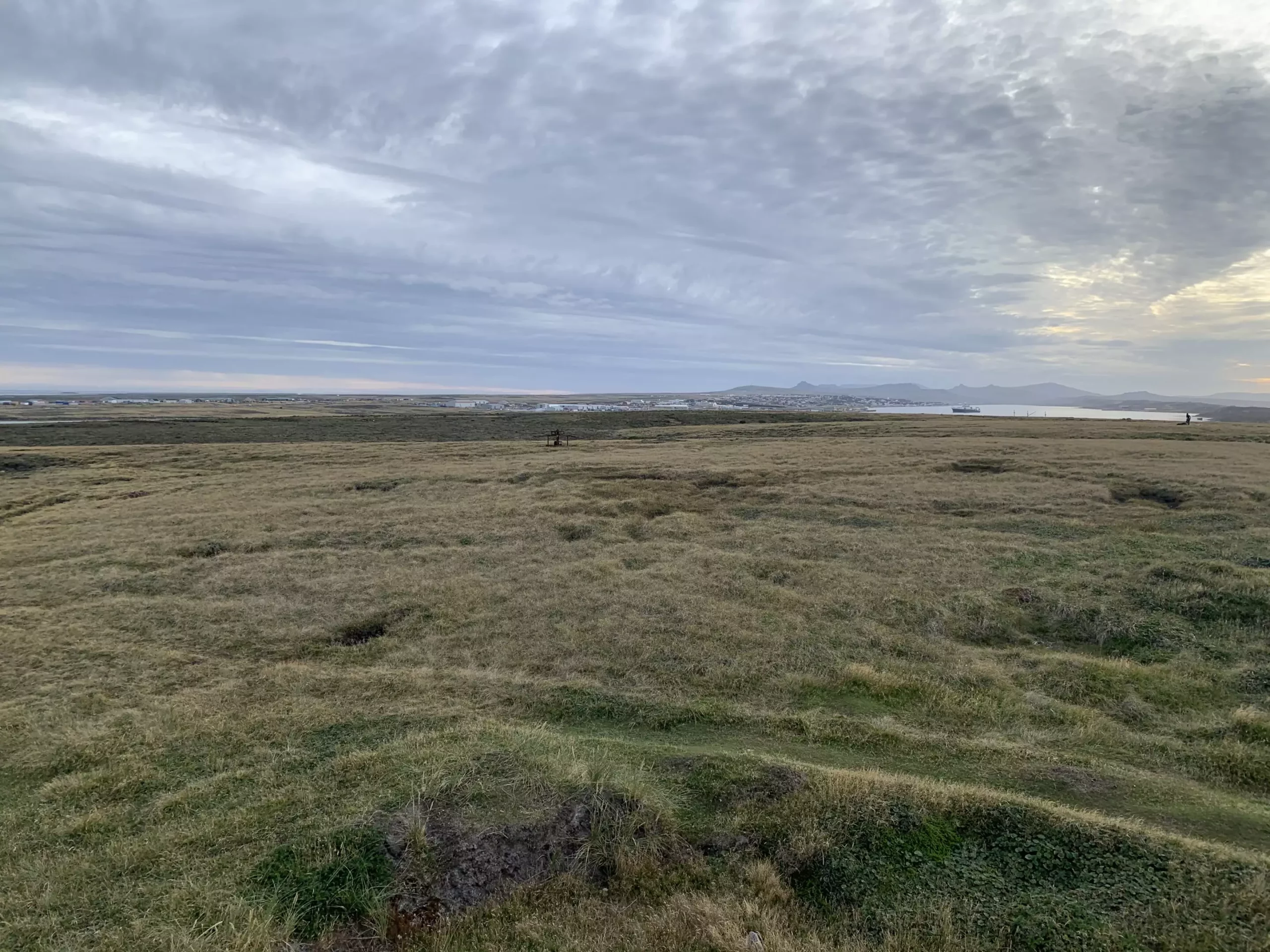Recent scientific investigations helmed by Dr. Zoë Thomas from the University of Southampton have unveiled a surprising chapter in the geological history of the Falkland Islands. For millions of years, the region’s signature rugged, treeless landscape has belied what once thrived there: a diverse rainforest flourishing under warm, moist conditions. This revelation not only broadens our understanding of environmental and climatic shifts that have occurred over eons but also evokes a sense of wonder regarding natural resilience and transformation.
The findings, published in the journal *Antarctic Science*, shed light on the prehistoric context of the Falklands, a British territory situated over 8,000 miles from the UK. The investigative journey began quite unexpectedly when Dr. Thomas’s team was informed of rare prehistoric tree remains uncovered at a construction site in the capital, Port Stanley. Chance conversations among a close-knit community led them to realize that beneath the feet of modern residents lay remnants of an ancient world.
The serendipity of scientific discovery is often overlooked, and in this case, it was the community’s interaction with researchers that proved significant. Excavators had unearthed large, well-preserved tree trunks and branches buried deep in a peat layer, igniting curiosity among the researchers about the ecological history encoded within these organic fragments. As noted by Dr. Thomas, the local insights were pivotal in unearthing valuable samples that otherwise might have remained undiscovered.
What followed was an intricate process of sample collection and analysis, revealing how the remains, found at a site intended for a new care home, posed a compelling paradox: if these tree remnants were so well-preserved, what had led to their burial and subsequent disappearance from the Falklands for millions of years? The analyses, conducted in Australia using advanced technology such as scanning electron microscopes, pinpointed the age of these specimens to between 15 and 30 million years ago, using pollen spores as more reliable age indicators when radiocarbon dating proved futile.
Understanding the climatic context of the Falkland Islands is crucial for grasping the significance of these findings. Millions of years ago, the South Atlantic was characterized by a significantly warmer and wetter climate well-suited for lush rainforests, akin to those found in Tierra del Fuego today. The present-day environment, starkly different, has endured centuries of change that have rendered the landscape incapable of supporting the forest ecosystems that once thrived there.
Research suggests that the tree species populating the Falkland Islands during the existence of this rainforest likely migrated from existing rainforests along prevailing westerly winds. Over time, these trees adapted to the local environment, a dynamic interplay between flora and climate that shaped a rich biodiversity. The eventual decline of this rainforest ecosystem remains unclear; however, the hypothesis points toward a gradual shift toward colder and drier conditions—an evolutionary response that resulted in a transition to the peatlands observed today.
One of the most compelling aspects of this study lies in the community-oriented approach that facilitated its success. Dr. Thomas expressed gratitude towards the local islanders, whose awareness and willingness to share information not only made the discovery possible but underscored the value of collaboration in scientific research. This anecdote serves as a reminder of the interconnectedness of communities and academia; casual conversations can lead to groundbreaking scientific revelations.
Moreover, the enthusiasm and openness exhibited by the inhabitants of the Falkland Islands demonstrate how local knowledge plays a critical role in preserving natural history. Engaging communities in research processes is essential for uncovering hidden narratives lost to time, reviving a sense of stewardship and respect for the environment that surrounds them.
The implications of this research extend beyond the discovery of an ancient rainforest. It paints a broader picture of how ecosystems are not static; they are dynamic, adapting to climatic shifts and enduring challenges over millions of years. As climate change continues to challenge our understanding of ecological resilience, studies like these can help inform efforts toward conservation and restoration.
The revelation of a lost rainforest in the Falkland Islands offers invaluable insights into our planet’s climatic history. It serves as a poignant reminder that beneath even the most inhospitable surfaces lie intricate histories waiting to be uncovered. As scientists continue their explorations, let this discovery inspire collaborative efforts to better understand our world and define our role within it.


Leave a Reply